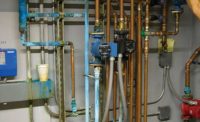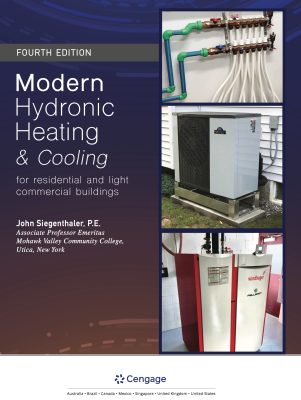The Canadian Hydronics Council, a division of the Canadian Institute of Plumbing and Heating, sponsored a meeting with key hydronic heating groups Aug. 27-28 to discuss the development of the National Hydronic Heating Code of Canada.
Ralph Suppa, assistant general manager of the Canadian Hydronics Council, told Supply House Times that such a code is needed because hydronic heating is making a comeback in North America.
"We have a plumbing code but no heating code," Suppa said. "We believe it is important that new contractors coming into the industry, as well as current contractors, are knowledgeable about all aspects of hydronic heating."
Members of the Alberta Hydronics Advisory Council, CIPH Region Hydronics Committees, the Residential Hot Water Heating Association of British Columbia and the Canadian Hydronics Council attended the meeting to establish a standard document to be part of Canada's national, provincial, territorial and local building codes.
"We are unique in that we're trying to put together a national code," Suppa said. "A couple of jurisdictions - British Columbia and Alberta - have established codes for their areas. We are incorporating their guidelines and using their input to create a code for all of Canada."
During the two-day meeting, substantial progress was made in the final completion process for the code, which will ensure safety, performance, serviceability and longevity of hydronic heating systems.
Suppa said that the Radiant Panel Association developed a similar document in the United States. However, while the RPA document is just a guideline for hydronic heating contractors, the Canadian document will become part of the Canadian National Building Code, making it an enforceable policy.
Suppa estimated that the final version would be completed in the early part of 2000.
The next step for the group is to develop a hydronic heating how-to guide, which could be used by various Canadian institutions to establish accreditation and certification training programs on hydronic radiant heating systems.Proper system design, calculating heat loss numbers, proper layout and quality installation are skills that every hydronic heating contractor must know, and certification would ensure that such skills are mastered, Suppa said.
"This is a major undertaking, especially since this is all being done by volunteers - manufacturers, manufacturers agents, wholesalers and contractors," Suppa said. "There is tremendous cooperation between these groups to develop a unified document."
The group's next meeting is scheduled for Dec. 10-11 in Calgary, Alberta.






